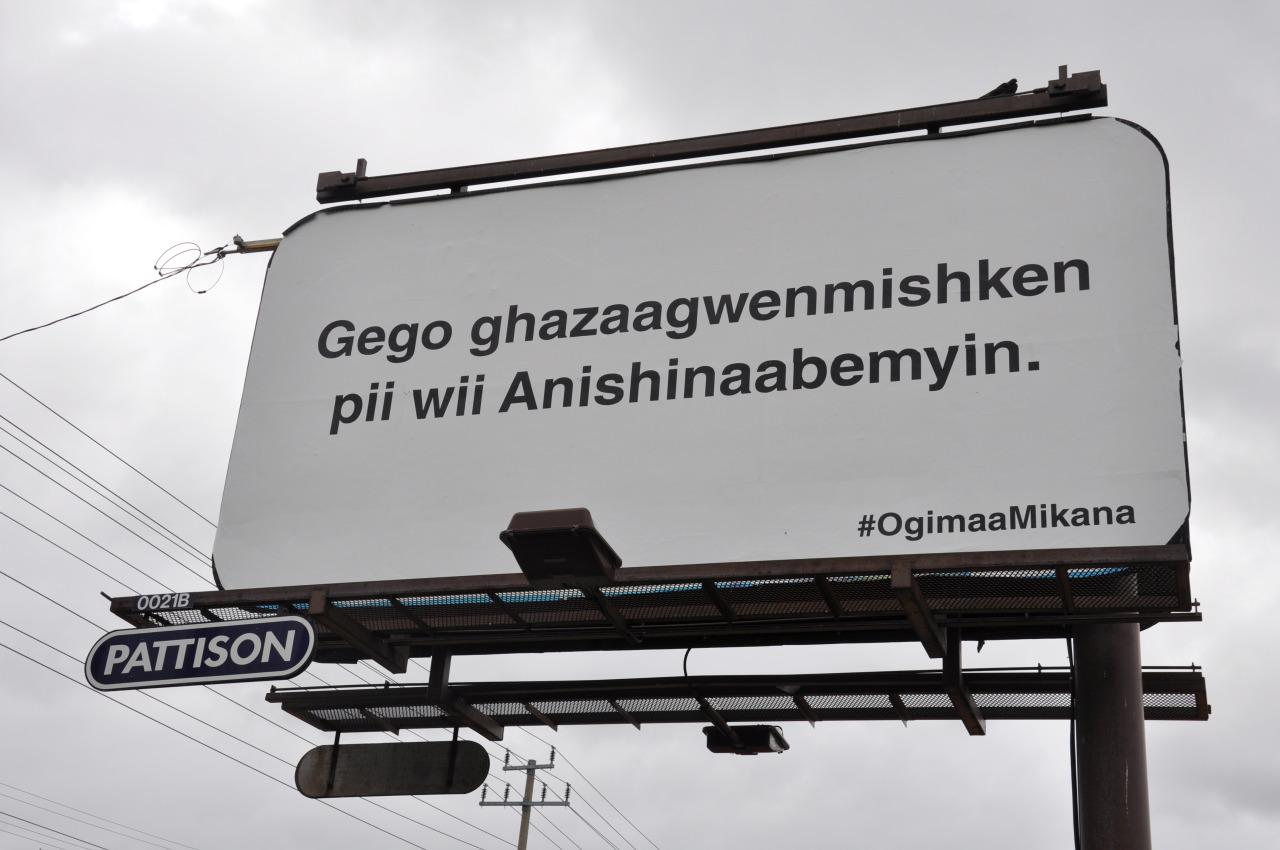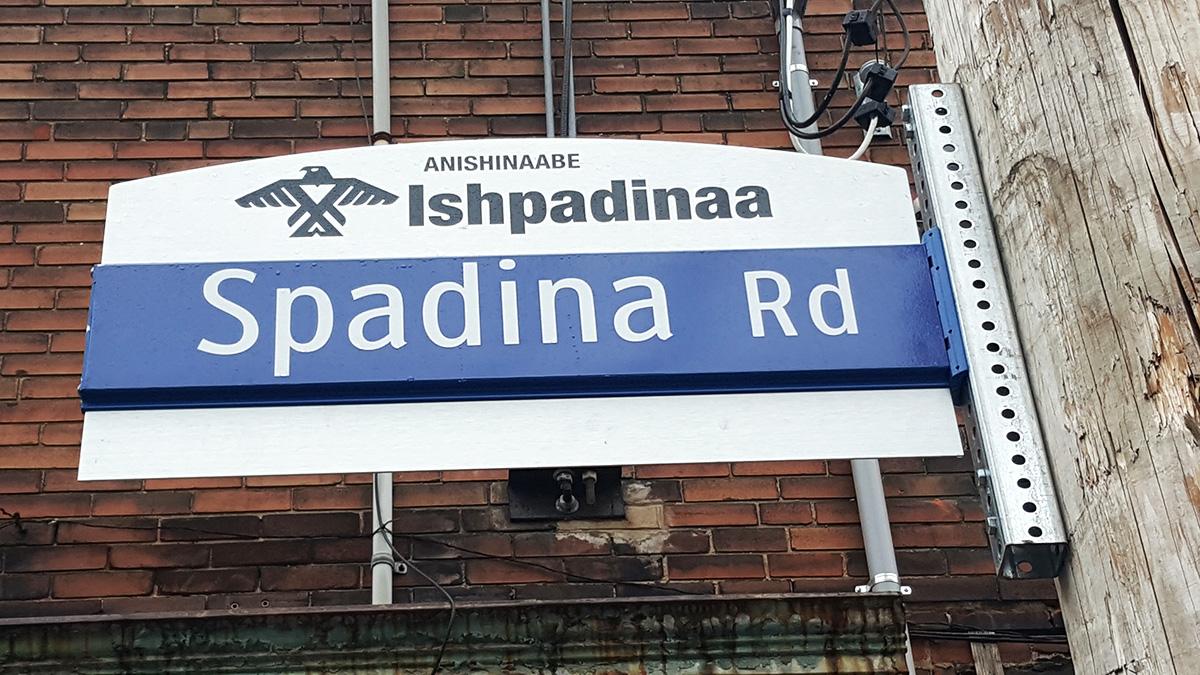A street sign in Toronto now displays its indigenous name, too.
It started out with stickers installed over street signs in Toronto, Canada.
Printed on those stickers were indigenous names, either for the streets themselves or the area the streets run through. For three years, members of the Ogimaa Mikana project posted these informal reminders of what the First Nation peoples called these places long ago.
They created billboards, street signs and plaques to make the city's indigenous history and residents more visible. None of it was officially sanctioned.
"There has been a very long history in Canada of erasing indigenous presence and I think this is especially true in the city," said Hayden King, co-founder of Ogimaa Mikana and a member of the Anishinaabe tribe.
He thinks Canadians often believe that indigenous people only live in the northern part of the country or on reservations.
In fact, "there are tens of thousands of indigenous people living in Canadian cities, that have always been living in Canadian cities before colonization and certainly after," he said.
The project aims to "[remind] Canadians that they're on indigenous land," he added.
Ogimaa Mikana has posted several signs outside of Toronto, too.
The signs had an impact, and city officials reached out to Ogimaa Mikana. The project collaborated with Dupont by the Castle Business Improvement Area and the City of Toronto to turn the makeshift signs into official ones, making them the first indigenous street names in the city.

Four streets in Toronto now bear signs with their indigenous Anishinaabe names. They went up on Sept. 15.
"We didn't believe it would happen at first," Hayden admitted, as the group was accustomed to indigenous causes getting ignored.
"I think they wanted to acknowledge indigenous history, and we're in this era of supposed reconciliation in Canada. I got to give them a lot of credit," he said.
Hayden said his group is careful to represent that history in the signs.
"We do research to corroborate our translations and to figure out the original place names," Hayden said. "It's actually a fairly significant amount of work." The group relies on historical documents, archeological information and advice from indigenous elders.
Whenever translating names into Anishinaabe languages, Hayden said they make sure to run the translation by an elder for accuracy.
Hayden hopes the new street names encourage activists and educators to "push their narrative and to reinsert themselves into the landscape of Canadian and American consciousness [by] whatever means possible."
More information about the Ogimaa Mikana project and work they've done can be found on their website.
